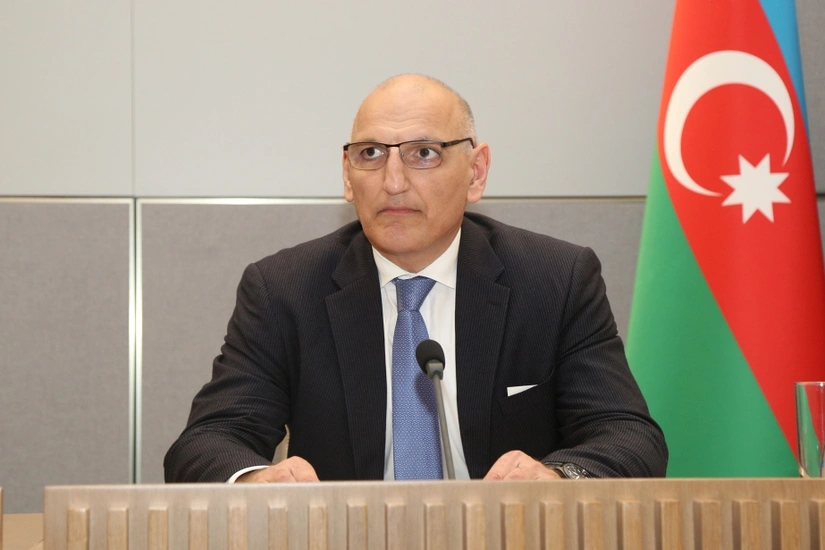Elchin Amirbayov: Peace possible if Armenia shows strong commitment to it
- 09 November, 2023
- 06:35

The conclusion of a peace treaty between Azerbaijan and Armenia is possible if the latter is firmly committed to it and shows a constructive position in the peace process, representative of the president of the Republic of Azerbaijan for special assignments, Ambassador Elchin Amirbayov said in an interview with the Italian news agency Adnkronos during a working visit to Italy, Report informs.
Amirbayov noted that achieving peace and tranquility in the region is possible, but only if Armenia “stops imitating its participation in the peace process and resumes constructive work on the draft peace agreement presented to it by Azerbaijan more than a year ago and based on five fundamental principles of international law.”
The representative of the president of Azerbaijan emphasized that the positive outcome of the negotiations “will largely depend on the level of sincerity of the Armenian authorities,” who, unfortunately, today adhere to a dual approach: “On the one hand, they talk about the desire to complete work on a peace treaty, on the other hand, they have unleashed diplomatic war against Azerbaijan.”
According to Amirbayov, the Armenian authorities “abuse” various international platforms, such as the UN Security Council, the European Parliament, and even the European Union itself. Thus, Yerevan “not only distracts the attention of all interested parties from the main path to peace, but also brings the process to a dead end,” the ambassador believes, clarifying that “Baku does not put forward any conditions” for reaching an agreement.
“But I think that in order to reach a final agreement, Armenia must demonstrate that it respects the commitments it has already made, that it will fulfill the promises made in the past,” he clarifies, “I think that Armenia must resume negotiations on the peace project agreement, but at the highest level, and stop trying to pursue their own narrow political goals in parallel directions with the help of their allies.”
The presidential representative rejected as completely groundless the allegations of the Armenian side about ethnic cleansing and genocide allegedly committed by Azerbaijan in the Karabakh region, accusing Yerevan of banal devaluation of these concepts, while “the facts on the ground indicate just the opposite.”
“It was Armenia that in the early nineties carried out a total ethnic cleansing of the Azerbaijani population in all the occupied territories of Azerbaijan, and as for the act of genocide, it was committed by Armenia on February 26, 1992, when the city of Khojaly, inhabited by Azerbaijanis, was completely destroyed, and the population, including women, old people and children were exterminated,” Amirbayov said, reminding that “613 Azerbaijanis were killed here in one night.” At the same time, Azerbaijan “respects the rights of all residents of the country, including ethnic Armenians living in the Karabakh region,” he emphasized.
Amirbayov also spoke about the large-scale restoration work carried out by the Azerbaijani authorities in the territories liberated from thirty years of Armenian occupation, for which the country’s government has already spent more than $7 billion.
He also dwelt in detail on one of the main problems that Azerbaijan faced during post-conflict rehabilitation, namely the unprecedented contamination of the liberated territories with various types of landmines and unexploded ordnance.
“Armenia has planted about 1.5 million landmines, and the number of victims on the Azerbaijani side is constantly growing. Today, after the ceasefire, the number of victims of Armenian mine terror in Azerbaijan is 337 people,” he said.
